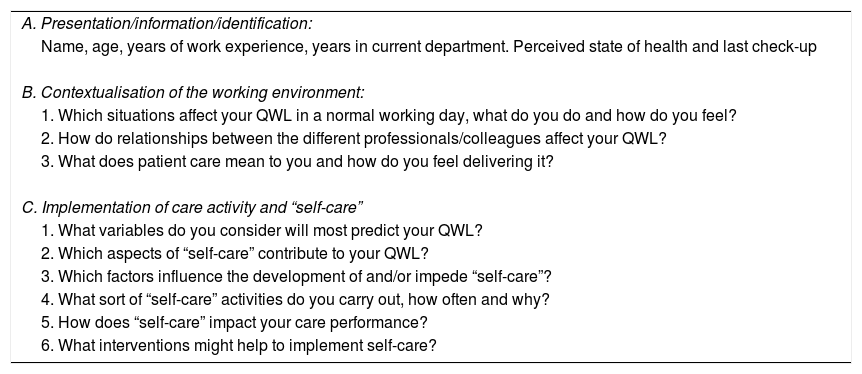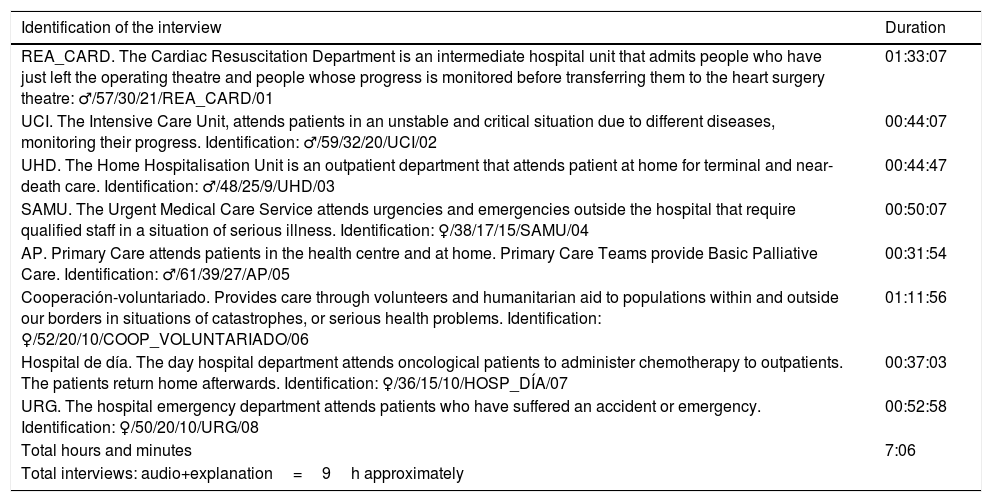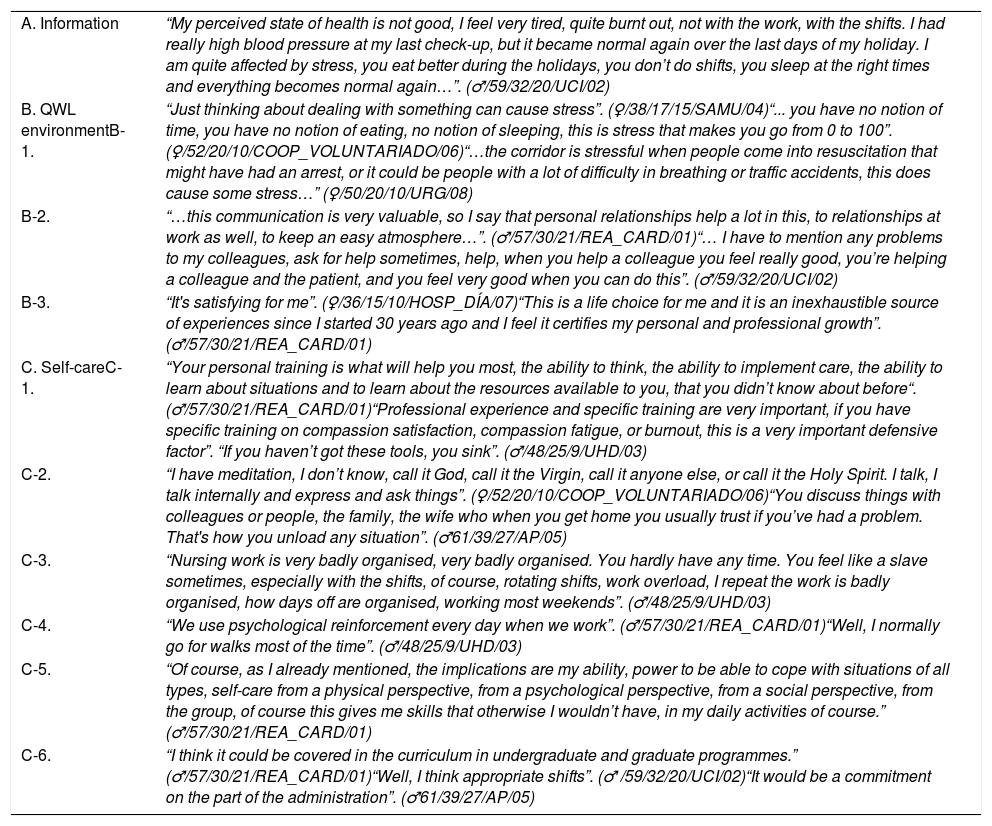To explore the variables related to the quality of work life and the self-care of nursing professionals working with high emotional demand.
MethodQualitative, according to the constructivist paradigm. It combines the phenomenological-hermeneutic/interpretative method with the use of semi-structured interviews. Information was analysed with Maxqda 11. Interviews included professionals from the Valencian healthcare system, with typical profiles of nurses working in surgical units, emergencies, oncology, home care, and cooperation.
ResultsOrganisational factors were reported as a barrier to self-care, affecting healthcare activity. Working with patients was highlighted as a protective factor, based on the satisfaction derived from helping in situations of serious illness and suffering. The quality of work life manifested was assessed as not being what they would desire and deficient. The factors that affected the professionals most were the type of working day and work schedules (shifts, nights, holidays, on call,...). The physical, mental and social dimensions of self-care can attenuate the negative effects of this situation.
ConclusionsIt is necessary to examine in depth the construct of self-care, to counteract emotionally stressful problems and situations, to propose intervention strategies, training plans and greater involvement of health institutions in the improvement of nurses’ quality of work life.
Explorar las variables relacionadas con la calidad de vida laboral y el autocuidado de profesionales de enfermería en situaciones estresantes y con alta demanda emocional.
MétodoCualitativo, según el paradigma constructivista, combinando el método fenomenológico-hermenéutico/interpretativo mediante el uso de entrevistas semiestructuradas. La información fue analizada con Maxqda 11. Las entrevistas se realizaron a profesionales de centros sanitarios y servicios de Valencia con perfiles característicos de enfermería en unidades médico-quirúrgicas, urgencias, oncología, atención domiciliaria, y de ayuda humanitaria.
ResultadosLos factores organizativos se expresaron como barrera para el autocuidado, afectando a la actividad asistencial. Como factor protector, se señala el trato con pacientes, basado en la satisfacción que genera la relación de ayuda en situaciones de gravedad, y sufrimiento. La valoración de la calidad de vida laboral manifestada no fue la deseada y resulta deficiente. Los factores que más afectan se refieren al tipo de jornada laboral y los horarios de trabajo (turnos rodados, noches, festivos, guardias…). Las dimensiones física, psíquica y social del autocuidado, pueden atenuar los efectos negativos de esta situación.
ConclusionesEs necesario profundizar en el constructo del autocuidado, para contrarrestar los problemas y situaciones emocionalmente estresantes, plantear estrategias de intervención, planes formativos y una mayor implicación de las instituciones sanitarias en la mejora de la calidad de vida laboral de enfermería.












